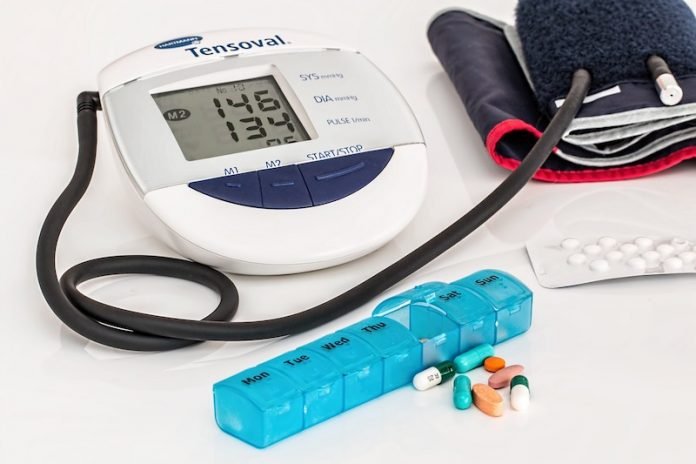
There’s no question that as body weight increases, so too does blood pressure.
In a new study, researchers have identified what may be a new way to lower blood pressure in obese patients and improve these outcomes.
They revealed exactly which molecules are likely responsible for the link between obesity and blood pressure.
Blocking one of these molecules—a signaling channel that’s found in a tiny organ on the side of the neck— may effectively lower blood pressure.
The research was conducted by a team from Johns Hopkins University.
Nearly a third of American adults have high blood pressure, and only about half of those people have their blood pressure under control through medications and lifestyle changes.
Hypertension can be especially difficult to treat in obese patients.
Obesity leads to a lot of bad cardiovascular outcomes, and a significant portion of those are related to poorly controlled blood pressure.
In the study, the team focused on leptin, a molecule that controls appetite and metabolism in response to food.
Obese people often become resistant to leptin, so rising levels of the molecule after a meal no longer boost metabolism or cause a feeling of fullness.
In response to this resistance, leptin levels continue to rise with obesity.
Leptin has also been shown to increase blood pressure and, surprisingly, obesity doesn’t change that link. Until now, researchers weren’t sure why.
The team first confirmed that giving high doses of leptin to lean mice triggered a rise in blood pressure of 10.5 to 12.2 mm Hg while having no effect on heart rate or food intake.
Next, the team studied obese mice that had no leptin receptors—despite their weight, they had normal blood pressure.
But when the researchers injected the genes for leptin receptors directly into the carotid bodies of these mice, the animals’ blood pressure readings rose by 9.4 to 12.5 mm Hg.
This shows that the carotid body is required for leptin to cause hypertension.
the researchers then treated mice with the multiple sclerosis drug FTY720 (fingolimod), which blocks channels typically involved in the immune system.
They found the drug effectively stopped extra doses of leptin from increasing blood pressure in lean mice.
The findings show a completely new mechanism of high blood pressure in obesity.
The team is now trying to develop a long-acting drug that could effectively treat hypertension in obese people.
One author of the study is Vsevolod Polotsky, M.D., Ph.D., professor of medicine.
The study is published in the journal Circulation Research.
Copyright © 2019 Knowridge Science Report. All rights reserved.



